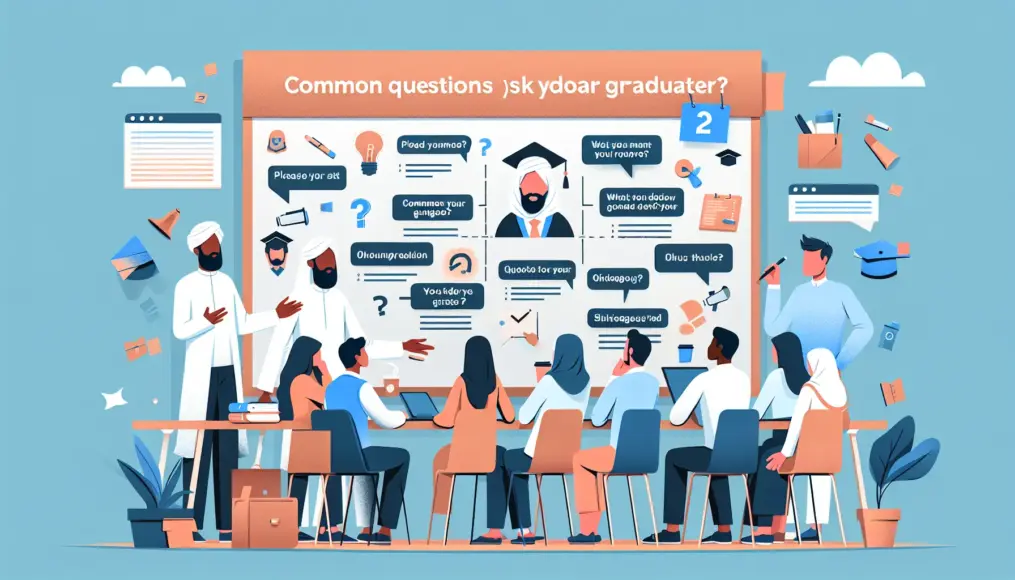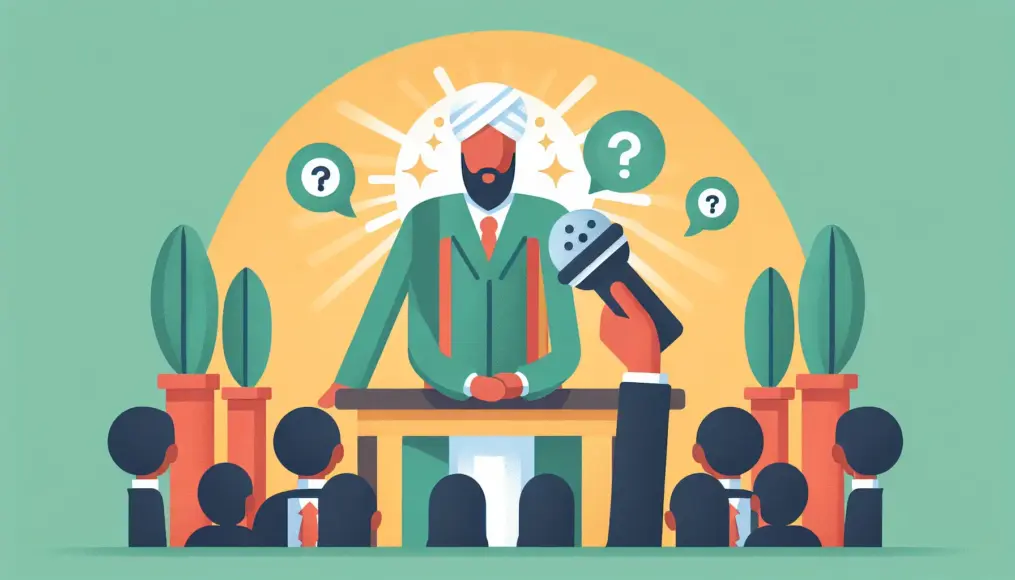Are you preparing for an interview as a second new graduate? If so, it’s essential to know what questions are commonly asked.
In particular, you should be ready to discuss your self-introduction and your previous work experience in detail. Interviewers are eager to understand your strengths and weaknesses, which means you’ll need to craft thoughtful responses.
In this blog post, we’ll dive into the typical questions second new graduates face during interviews, along with strategies to tackle them effectively.
- Explore the common trends in questions asked of second new graduates
- Discover tips on how to formulate successful responses
- Understand the importance of self-analysis and how to prepare for it
Common Interview Questions for Recent Graduates
If you’re stepping into the job market as a recent graduate, you might be wondering what kinds of questions you’ll face during interviews.
Understanding the intent behind these questions can help you prepare more effectively.
Let’s dive into the common trends in interview questions that recent graduates encounter and the reasoning behind them.
Common Question Trends
There are several recurring themes when it comes to the questions you’ll often hear in interviews.
For instance, you can expect questions about your self-introduction, your experiences at previous jobs, and your motivations for applying to the company.
These questions reflect the interviewer’s desire to get to know you better.
In particular, recent graduates are frequently asked how their past experiences can contribute to success in a new workplace.
Preparing solid responses to these types of questions is crucial.
- Questions about self-introductions and previous job experiences are common
- Asking about your motivations helps gauge your enthusiasm for the company
- You’ll need to demonstrate how you can contribute to the new workplace
The Intent Behind the Questions
There’s a range of intentions behind the questions interviewers ask.
For example, they want to know how your past experiences can be applied to the new role.
Additionally, through your self-introduction, they’re assessing your communication skills and personality.
Given that interviewers are evaluating you from multiple angles, it’s important to think creatively about how to respond.
By understanding the intent behind the questions, you can present yourself more effectively.
To further grasp the purpose of the questions in interviews, check out our guide on Ace Your Interview: Understanding Question Intent to Answer Effectively.
- Interviewers check for adaptability to the new workplace based on past experiences
- Many questions aim to assess communication skills and personality
- Understanding the intent behind questions enables more effective self-presentation
Tips for Answering Interview Questions Successfully
How you respond to questions during an interview is crucial, especially for recent graduates. You’ll need to effectively convey how your past experiences can be an asset in your new role, so it’s essential to prepare solid answers.
In this article, we’ll explore specific examples of successful responses and highlight answers to avoid.
Concrete Response Examples
When answering questions, specificity is key.
For instance, if you’re asked about your previous job experience, clearly outline the role you played. Use concrete examples and, if possible, back them up with numbers or specific achievements to make your response more compelling.
Similarly, when discussing your motivation for applying, connect the company’s values and mission with your own beliefs and aspirations.
Integrating specific anecdotes into your responses can leave a positive impression on the interviewer.
- Present specific roles and achievements with numbers
- Connect the company’s characteristics with your values
- Use anecdotes to add credibility to your answers
Responses to Avoid
There are certain types of answers you should steer clear of during interviews.
For example, avoid discussing negative topics or complaining about your previous job.
Additionally, if your responses are too generic, they may not resonate with the interviewer.
While it’s important to highlight your strengths and experiences, try not to come off as overly self-centered in your responses.
By being mindful of these aspects and refining your answers, you can significantly increase your chances of a successful interview.
- Avoid negative topics and complaints
- Generic answers won’t leave a lasting impression
- Refrain from overly self-centered remarks
If you’re looking for more in-depth information on interview preparation, check out Customer Service Interview Tips: Common Questions and Secrets to Success.
Key Points for Self-Analysis Preparation
To ace your interview, self-analysis is crucial.
By understanding yourself better, you can effectively communicate your strengths to the interviewer.
In this article, we’ll discuss how to craft a self-introduction and how to identify your strengths and weaknesses.
Crafting Your Self-Introduction
Your self-introduction is a vital part of the interview, typically occurring at the very beginning.
Use this opportunity to showcase your personality and experiences.
Start by briefly stating your name and background, then highlight points that you want the interviewer to pay special attention to.
For instance, discussing your previous work experience, what you’ve learned, and your career aspirations can leave a lasting impression.
Preparing to present yourself attractively in a short amount of time is essential.
- Briefly introduce your name and background
- Highlight experiences you want to emphasize
- Discuss your career goals to indicate direction
Organizing Your Strengths and Weaknesses
Another important aspect of self-analysis is organizing your strengths and weaknesses.
For your strengths, think about specific achievements and skills, and clarify how you can leverage them.
On the other hand, when discussing weaknesses, explain how you’re working to improve them to demonstrate your desire to grow.
For example, you might say, “I struggle with presentations, but through consistent practice, I’ve gradually become more confident.” This approach effectively communicates your improvement process.
Looking at yourself objectively can significantly aid in your interview preparation.
- Showcase strengths with specific achievements and skills
- Discuss weaknesses by sharing your improvement efforts
- It’s important to view yourself objectively
If you’re interested in examples of self-introductions, be sure to check out the Guide to Self-Introduction Examples for College Students: Tips for Success!.
Making a Positive Impression in Interviews
In job interviews, first impressions are crucial.
For recent graduates, especially those entering the workforce for the second time, showcasing youth and fresh perspectives is key to leaving a positive mark.
In this article, we’ll explore how to enhance your first impression and the importance of asking insightful questions during the interview.
Tips for Making a Great First Impression
It’s said that first impressions are formed within just a few seconds.
While looking presentable is fundamental, a bright smile and confident posture are equally important.
Maintaining good eye contact with the interviewer can help establish trust and rapport.
Your choice of words and demeanor also play a significant role, so aim for polite and calm responses.
By being mindful of these aspects, you can significantly improve your first impression.
- Dress appropriately and be well-groomed
- Maintain a bright expression and confident posture
- Use eye contact to convey trustworthiness
The Importance of Asking Questions
At the end of the interview, you’ll often be given the chance to ask questions of your own.
This is a golden opportunity to showcase your enthusiasm and genuine interest in the position.
For instance, inquiring about the company culture or team dynamics can demonstrate your proactive approach.
Moreover, asking questions allows you to visualize what it would be like to work at that company.
In this way, asking insightful questions is a vital element in ensuring a successful interview. For specific examples of questions to ask, check out 逆質問の具体的な例については、役員面接で使える逆質問!転職成功のカギを握るポイント.
- Use questions to express your enthusiasm and interest
- Asking about company culture and team dynamics is beneficial
- Questions can help you visualize your potential role in the company
Summary
When preparing for an interview as a recent graduate, it’s crucial to understand the common questions you’ll face and how to tackle them effectively.
By conducting a self-analysis and identifying your strengths and weaknesses, you can present yourself in the best light possible.
Additionally, making a great first impression and showing your enthusiasm through thoughtful questions can significantly enhance your chances of success in the interview.
- Understand your strengths and weaknesses through self-analysis
- Focus on making a positive first impression and maintaining eye contact
- Show your interest and motivation through insightful questions to impress the interviewer
Make sure you’re well-prepared for the interview and approach it with confidence!
Wishing you all the best in your endeavors! Feel free to share your thoughts or questions in the comments.



Comment